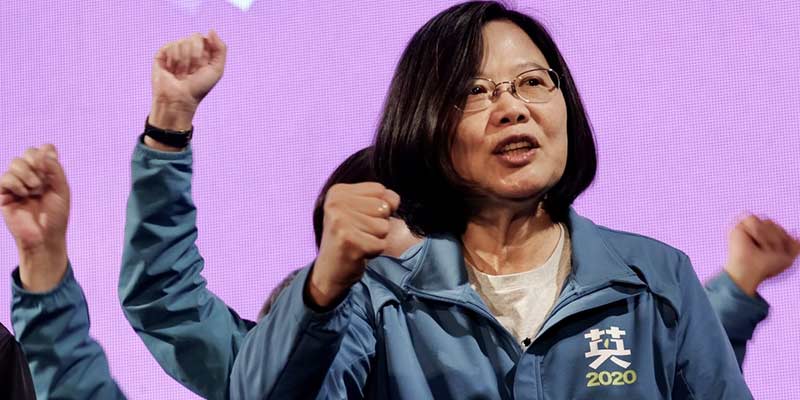- World
- Jan 08
Explainer / Taiwan vs China animosity
Taiwan goes to the polls on January 11 to elect a new president and parliament. China, which considers Taiwan merely a Chinese province and part of its territory, will be watching the outcome closely. Following are key facts on ties between Taiwan and China...
Politics
China has claimed Taiwan through its “one China” policy since the Chinese civil war forced the defeated Kuomintang to flee to the island in 1949 and has vowed to bring it under Beijing’s rule, by force if necessary.
Ties were badly strained when Chen Shui-bian from the Democratic Progressive Party (DPP) was Taiwan president from 2000 to 2008 because of his independence rhetoric, even as he tried to maintain positive relations with Beijing.
Relations warmed considerably after Ma Ying-jeou, from the Kuomintang party which favours close ties to China, took office as president in 2008 and then won re-election in 2012. Ma held a landmark meeting with Chinese President Xi Jinping in Singapore in late 2015.
In 2014, hundreds of students occupied Taiwan’s parliament for weeks in protests nicknamed the Sunflower Movement. They demanded more transparency in trade pacts negotiated with China in the largest display of anti-China sentiment the island had seen in years.
Since the DPP’s Tsai Ing-wen became president in 2016, Taiwan-China ties have soured again, with China cutting off a formal dialogue mechanism, flying bomber patrols around Taiwan, forcing foreign firms to refer to Taiwan as part of China on their websites, and whittling away at Taiwan’s diplomatic allies.
Beijing believes Tsai wants to push Taiwan’s formal independence, a red line for China. She says she wants to maintain the status quo, declaring neither Taiwan independence nor seeking to join with China.
Tsai says Taiwan is already an independent country, the Republic of China, its official name.
Tsai’s main opponent is the Kuomintang candidate Han Kuo-yu, mayor of the southern port city of Kaohsiung. He wants better ties with China to help boost Taiwan’s economy, and visited China last year, meeting with senior officials in charge of policymaking towards the island.
Trade
China is Taiwan’s top trading partner, with trade totalling $226 billion in 2018. Taiwan runs a large trade surplus with China.
China, with its 1.3 billion people and much cheaper costs, is also Taiwan’s favourite investment destination with Taiwan companies investing more than $100 billion there, private estimates show.
Taiwan has been trying to encourage Taiwanese businesses back home, and has had moderate success in the face of the China-US trade war, as companies look to relocate to avoid US tariffs on goods exported from China.
Military
China and Taiwan have nearly gone to war several times since 1949, most recently ahead of the 1996 presidential election. Then, China carried out missile tests in waters close to the island hoping to prevent people voting for Lee Teng-hui, who China suspected of harbouring pro-independence views. Lee won by a landslide.
Taiwan says China has thousands of short- and medium-range ballistic missiles as well as cruise missiles pointed at Taiwan, and that China runs a sophisticated online disinformation campaign to support China-friendly candidates.
China denies trying to meddle in the elections.
The US is obliged to help Taiwan with the means to defend itself under the 1979 Taiwan Relations Act. China always reacts angrily to US arms sales to Taiwan and has repeatedly demanded they stop.
China has the world’s largest armed forces, which have been rapidly modernising, adding stealth fighters, aircraft carriers and new submarines under an ambitious programme overseen by Xi.
Taiwan’s far smaller military is mostly supplied by the US. While well-trained, experts say the island could likely only hold out for a few days in the event of a Chinese attack unless Washington came quickly to its aid.
Manorama Yearbook app is now available on Google Play Store and iOS App Store

